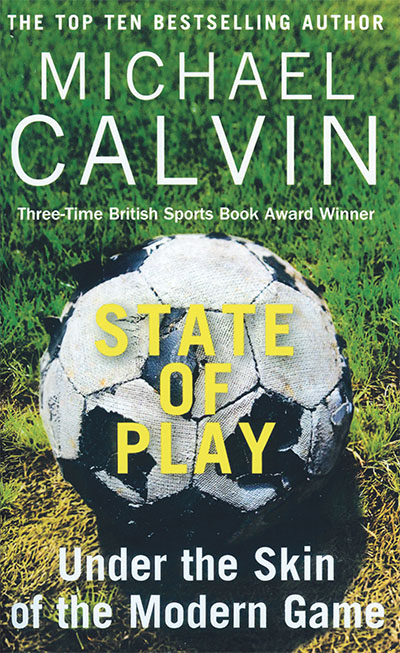
Century, £16.99
Reviewed by Neil Andrews
From WSC 380, November 2018
Buy the book
Two years after England won the World Cup, journalist Arthur Hopcraft decided a thorough examination of the modern game was long overdue. He produced The Football Man, a work described by the Independent on his death as “the most profound study of football ever published”. It explored the game through the eyes of the supporters, players, managers and directors in an attempt to reach “the heart of what football is”.
Fifty years on, award-winning author Michael Calvin, who has already examined similar themes in previous publications, sought to update Hopcraft’s book for the 21st century with State Of Play. The aim is to offer a fresh perspective with an expanded dramatis personae that now includes sports therapists, player agents and someone called “Gorilla” who is apparently very good at FIFA 18.
Unfortunately, his attempts to blend a diverse collection of voices into a cohesive narrative is undermined by the varying tone and quality of his supporting cast. Those with a story to tell or knowledge to impart are engaging and insightful. Established names such as Arsène Wenger and Steven Gerrard, who demonstrates a surprising degree of humility in discussing his role as a youth coach, sit comfortably alongside unsung heroes from the local community such Tajean Hutton, who runs a league in Wembley involving former gang members. There is also a telling anecdote from former Arsenal youngster Marcus McGuane, now with Barcelona B. Having witnessed the lack of ostentatiousness at his new club he is compelled to buy a Fiat 500: “In England I had a Merc… Everyone [here] is focused on football, not the things that come with it.”
Such tales contrast starkly with corporate talking heads, who offer solutions to cure football’s ills in thinly veiled sales pitches. A company called 21st Club, for example, develop exit strategies for clubs wishing to replace their manager. They draw up shortlists for replacements and recommend a swift turnaround in the hiring process yet insist they are “not here to threaten anyone’s job”. While criticising football as an industry where candidates with a track record of being sacked are actively employed, they cite Southampton’s Les Reed as a pioneering ally. The same Les Reed whose last hire was Mark Hughes.
While social media is discussed at length (one of the highlights of the book is Calvin’s amusing takedown of Fan TV stations), more traditional forms of media escape scrutiny. Hopcraft examined the effect of the media on football at length, yet Calvin ignores it completely, turning a blind eye to the role of the tabloids when laying the blame for the downfalls of George Best and Paul Gascoigne squarely at football’s door.
Where Hopcraft was an observer who commentated on the state of the game, Calvin is a crusader seeking to hold those responsible to account without always conducting a rigorous analysis or asking pertinent questions. Consequently, his evangelism is occasionally misplaced, as when he tries to evoke sympathy for former journeyman striker Drewe Broughton for having to pay his own university tuition fees. As a result, State Of Play is a thought-provoking effort but perhaps not for the reasons the author intended.